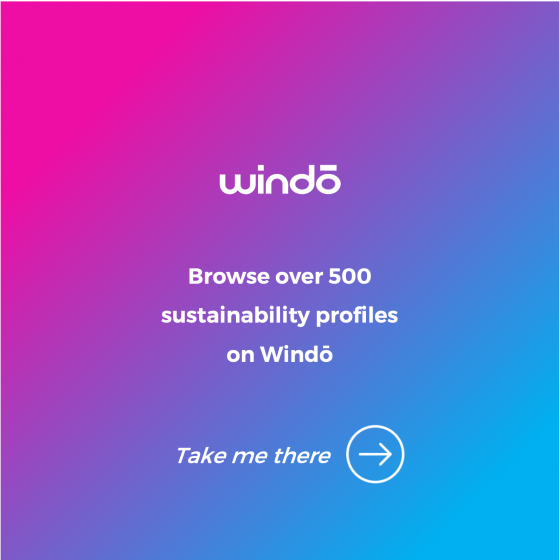With Caterpillar being the latest company to step back from DEI commitments—joining the likes of Molson Coors, Ford Motor, John Deere, Lowe’s, Harley-Davidson, Jack Daniels, and Tractor Supply—you might think DEI is at death’s door. But a closer look at the broader landscape tells a very different story.
So far, 90% of Fortune 100 companies have reported on their 2023 DEI data, and at Windō, after crunching the numbers, we found substantial growth in representation across the board.
Female Executives
With 73% of Fortune 100 companies sharing this metric for both 2022 and 2023, 75% reported an increase in female representation at senior levels. Only 14% saw a decline. Also, as of 2024, 10 Fortune 100 companies have achieved female parity on their board and average female board representation increased from 34.6% to 35.3%.
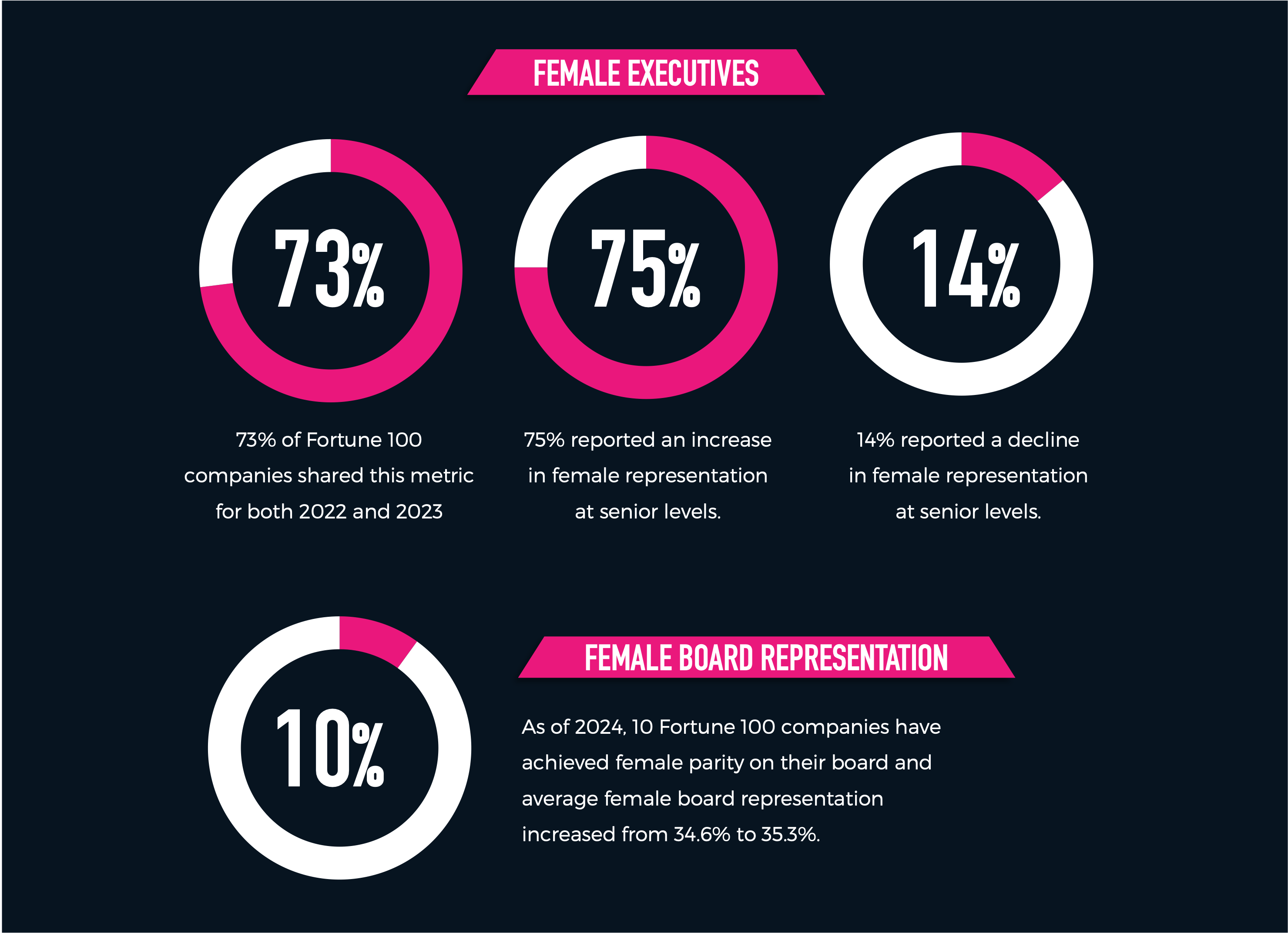
There are seven companies that stand out for increasing their Female Board Representation between 2022 and 2023. TJX, Apple, JPMorgan Chase, AbbVie, IBM, Albertsons and PepsiCo have increased their numbers by between 24% and 117% since 2022.
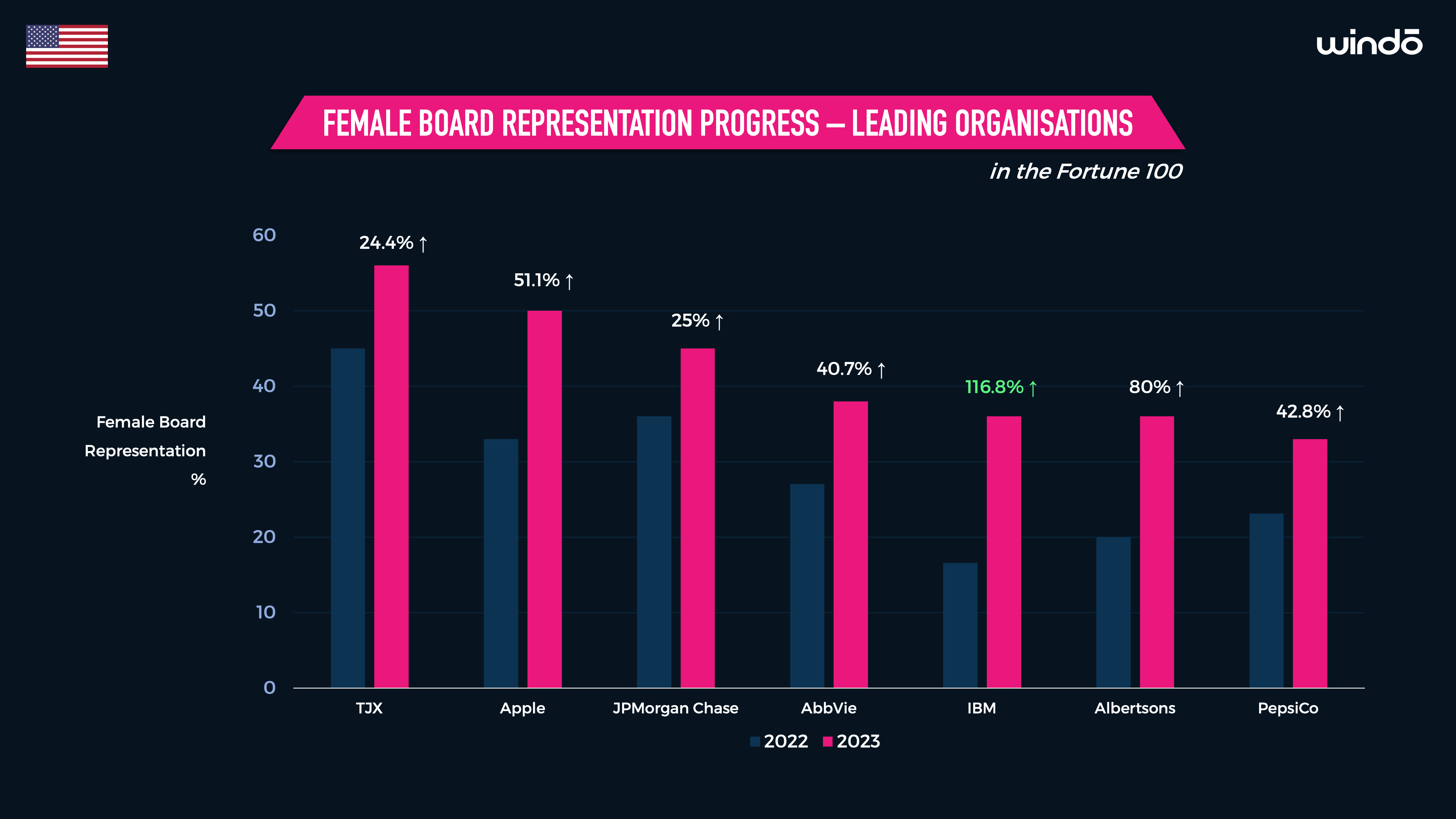
There are four companies that stand out for increasing their Female Executives Representation between 2022 and 2023 and they are Thermo Fisher Scientific, Allstate, General Motors and Phillipps 66, the last of which saw a increase in Female Executives Representation by 34.7%.
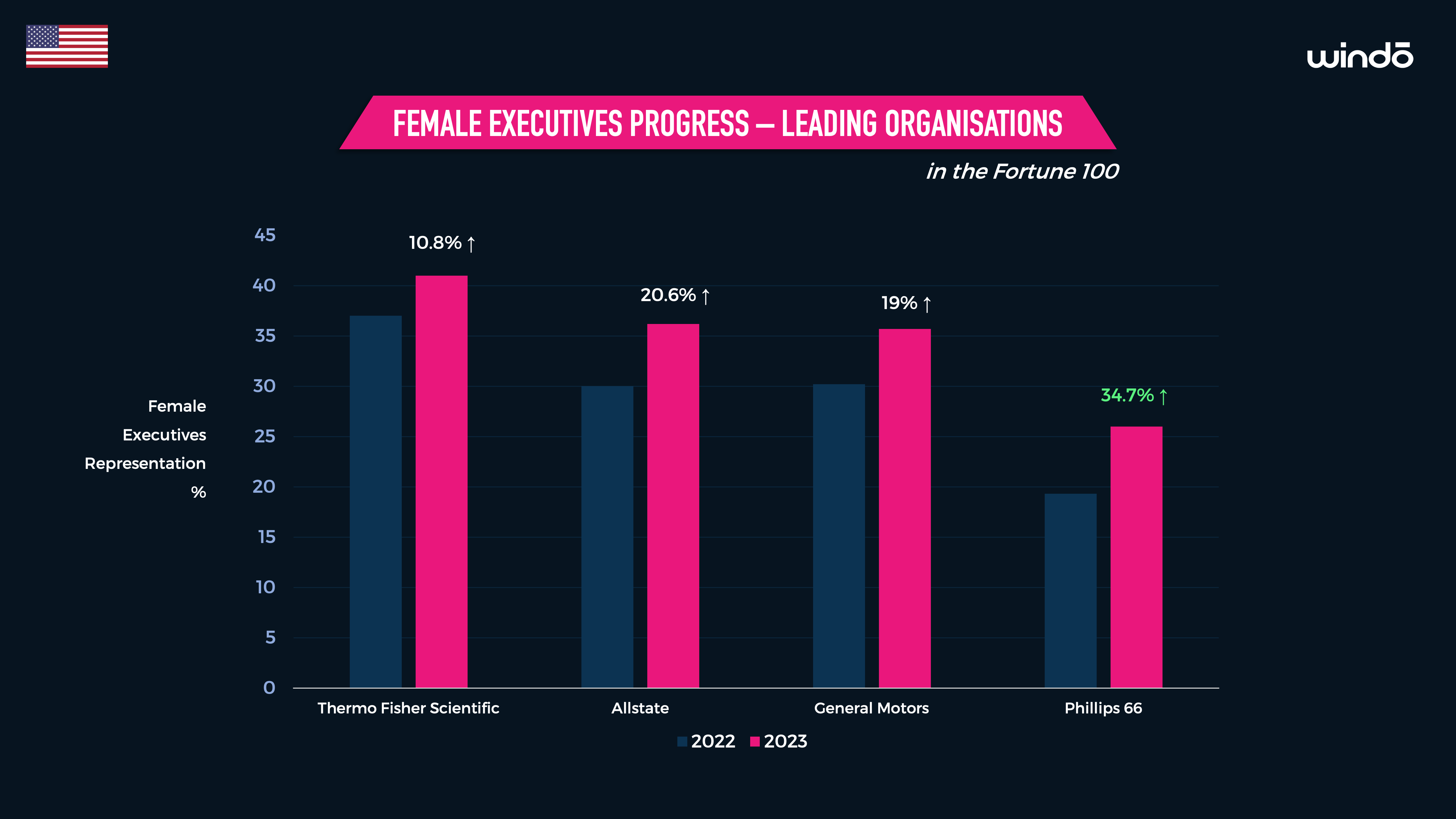
Ethnic Minority Executives
Of the 61% of Fortune 100 companies tracking this data in 2022 and 203, 56% increased ethnic minority representation in senior leadership, with 23% experiencing a decline.
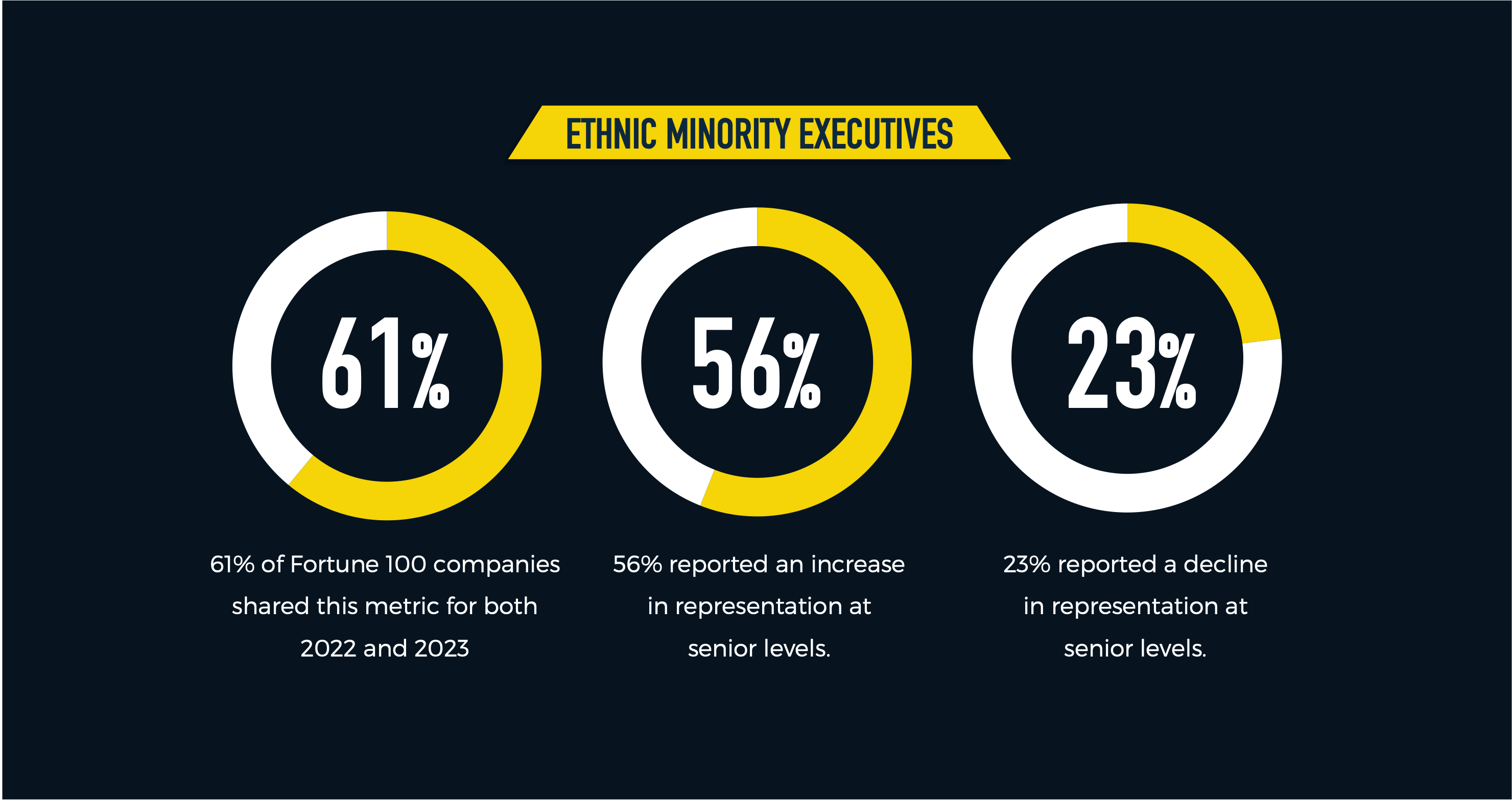
There are four companies that stand out for increasing their Ethnic Minority Executives Representation between 2022 and 2023. AT&T, Pfizer, Phillips 66, and United Airlines have increased their numbers by between 8.5% and 24.9% since 2022.
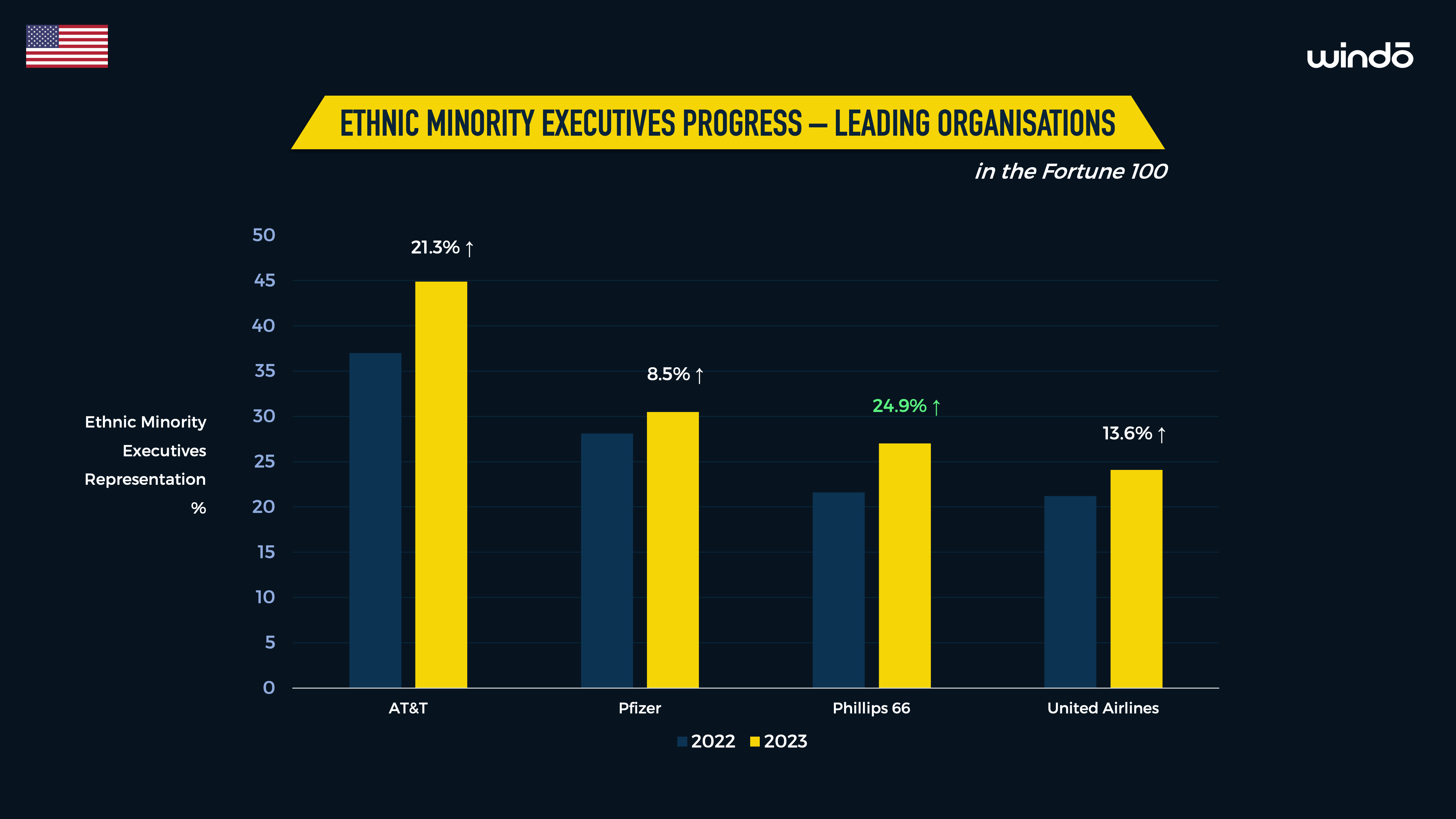
Disability Representation
Though only 26 Fortune 100 companies have disability workforce data for 2022 and 2023, 65% saw gains in representation, while only 12% saw a drop. And the number of companies sharing their disability representation has nearly doubled in the last three years.
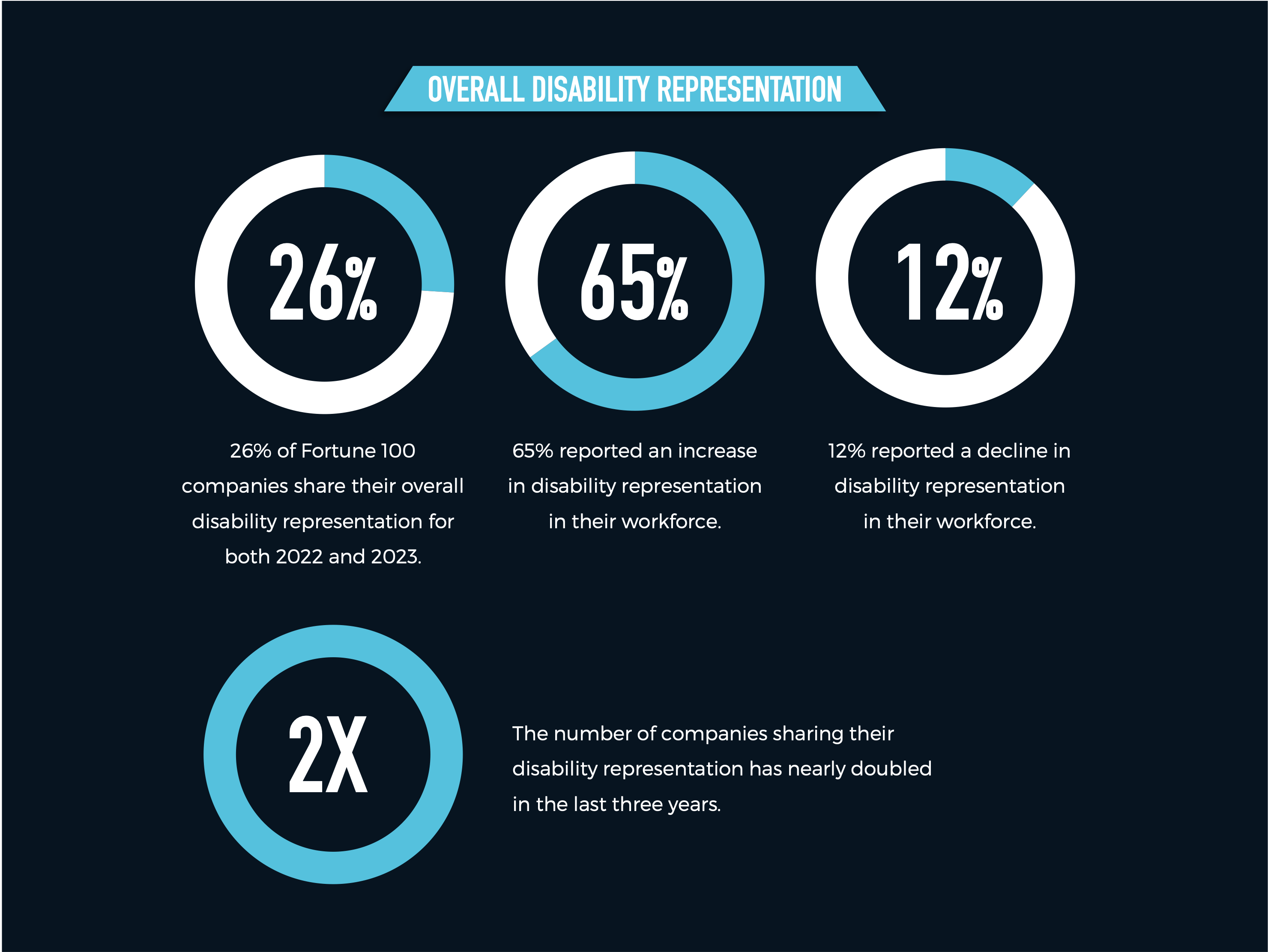
There are seven companies that stand out for increasing their overall Disability Representation between 2022 and 2023. Lockheed Martin, Meta, Google, General Electric, IBM, Qualcomm and Sysco have increased their numbers by between 13.8%% and a massive 1,687% since 2022.
“We know that over 80% of the Fortune 100 integrate disability into their annual reporting practices and that more than 25% are now publishing employee workforce representation data” explains Reid Jewett Smith, Director of Research & Policy at Disability:IN, the leading nonprofit resource for business disability inclusion worldwide. “We are thrilled to see Disability:IN partners leading the way in workforce representation and reporting. With great momentum from leading companies and a way to go to for representation and parity, this report demonstrates the importance of looking at representation holistically and highlighting year over year progress.”
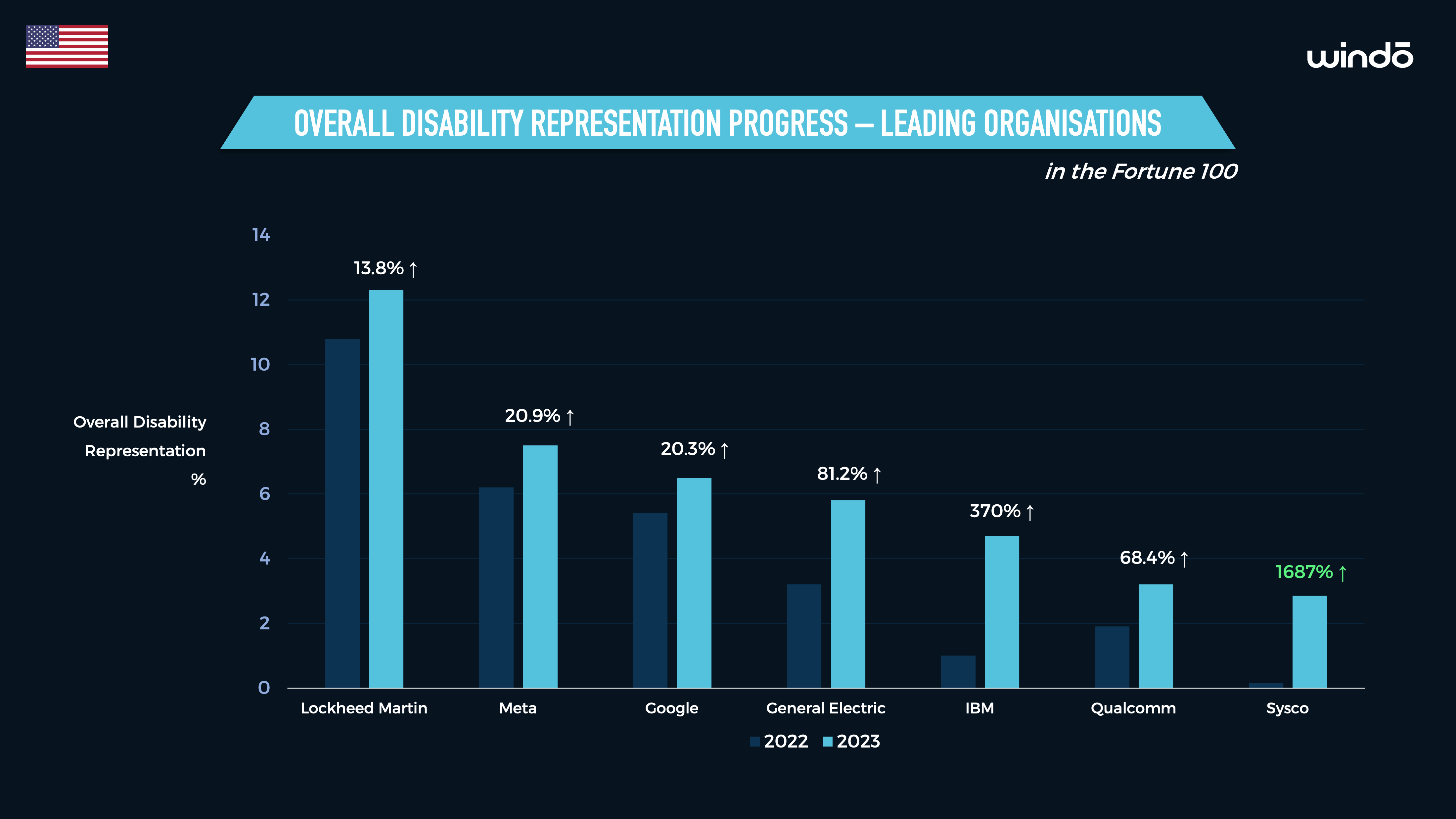
LGBTQ+ Representation
While only 13 Fortune 100 companies report on LGBTQ+ workforce representation, a trend of increased transparency continues. Notably, Bank of America and Cencora began reporting on this metric for the first time in 2023. In 2020 just six Fortune 100 companies shared the size of their LGBTQ+ workforce. Also, as of 2024, 14 Fortune 100 companies now have an LGBTQ+ board member.
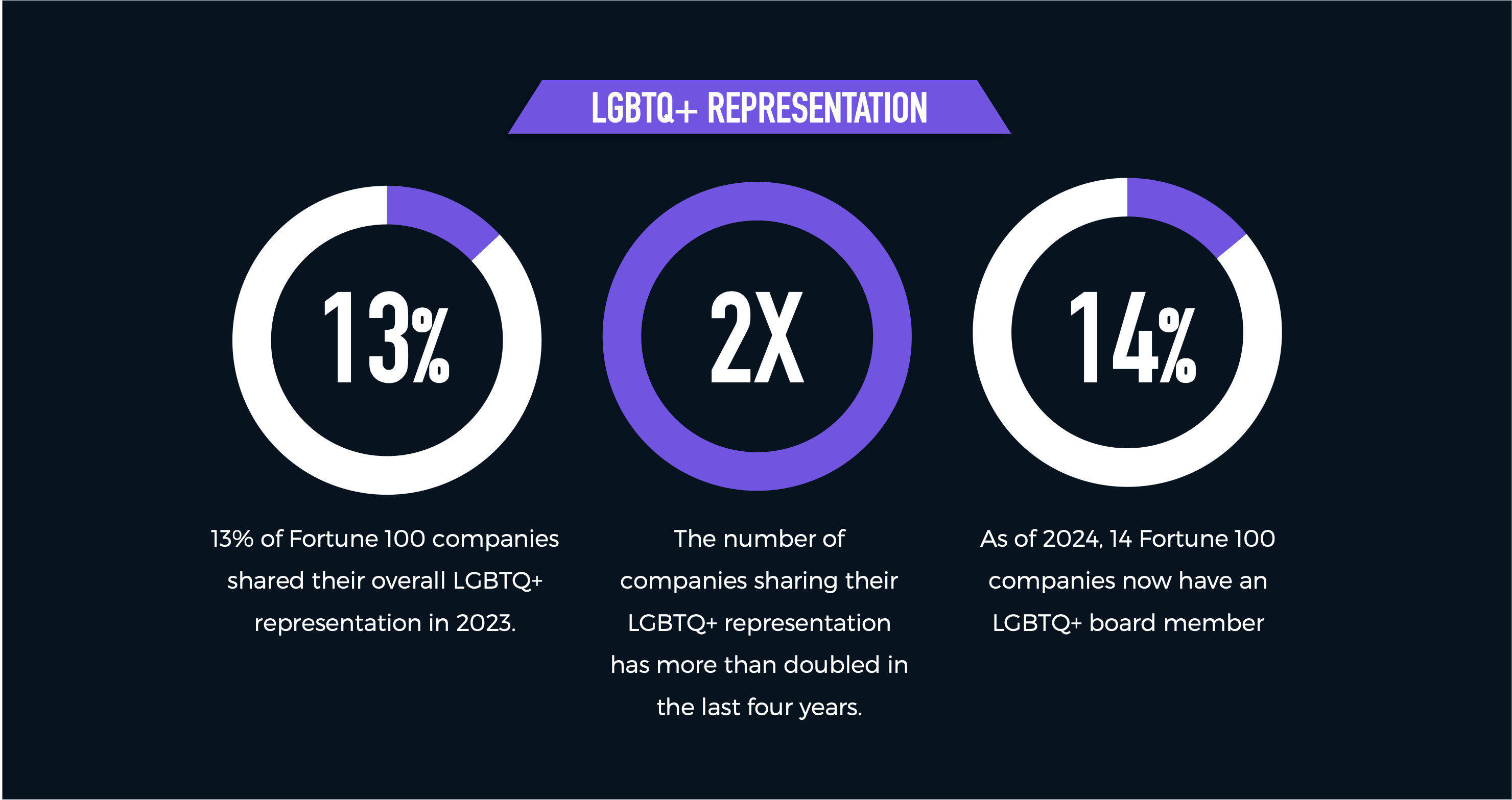
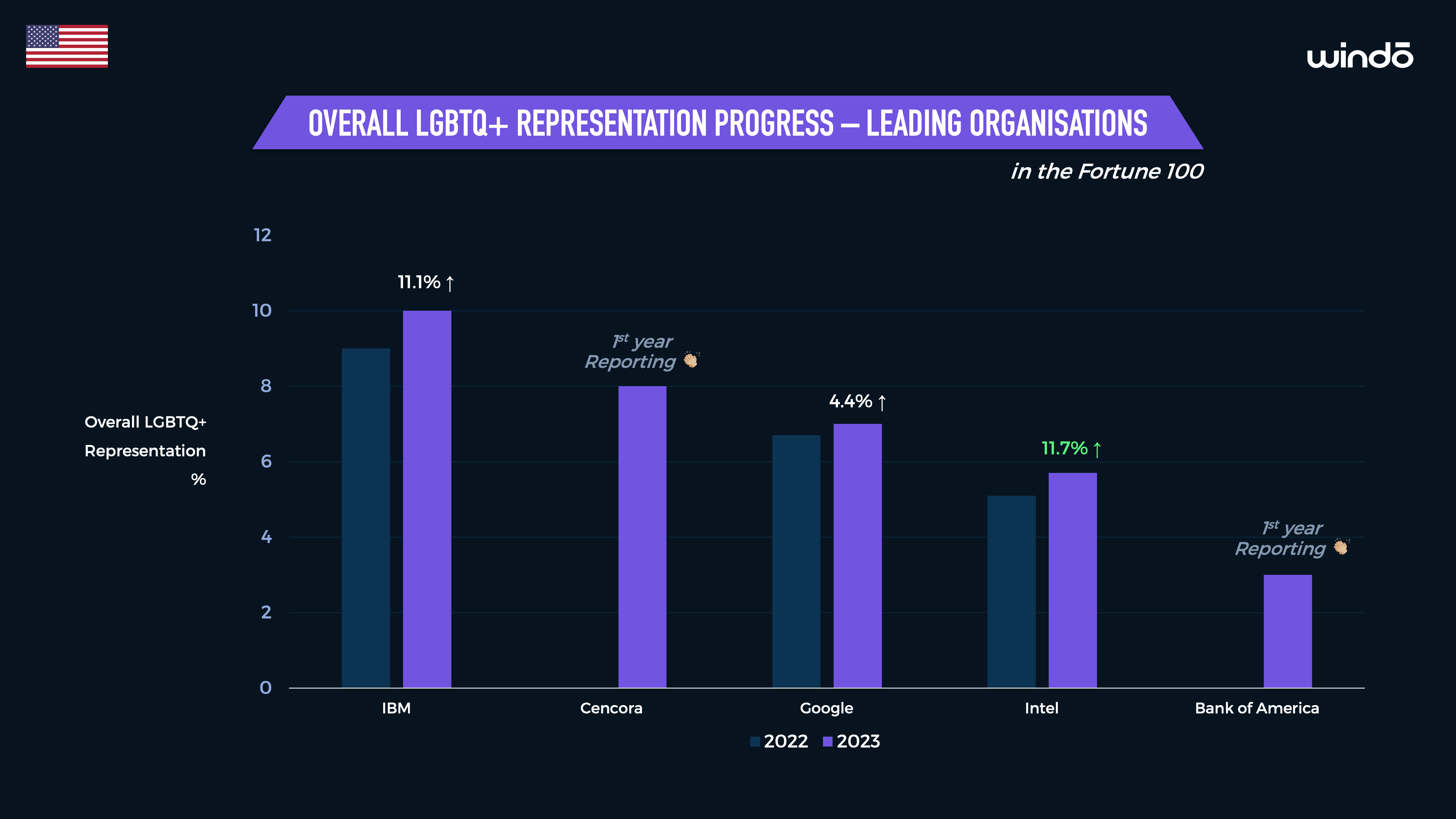
Scaling Back DEI Despite Great Progress
Interestingly, even companies like Caterpillar and Ford Motor, which have made headlines for scaling back their DEI efforts, have reported notable gains over the past few years. At Caterpillar, the proportion of ethnic minority executives increased from 12% to 16% over the last four years, while Ford Motor saw women in top management rise from 26.9% to 29% in just three years. It would be a shame to see these gains go in reverse—let’s see if they continue building on this progress when they publish their 2024 data next year.
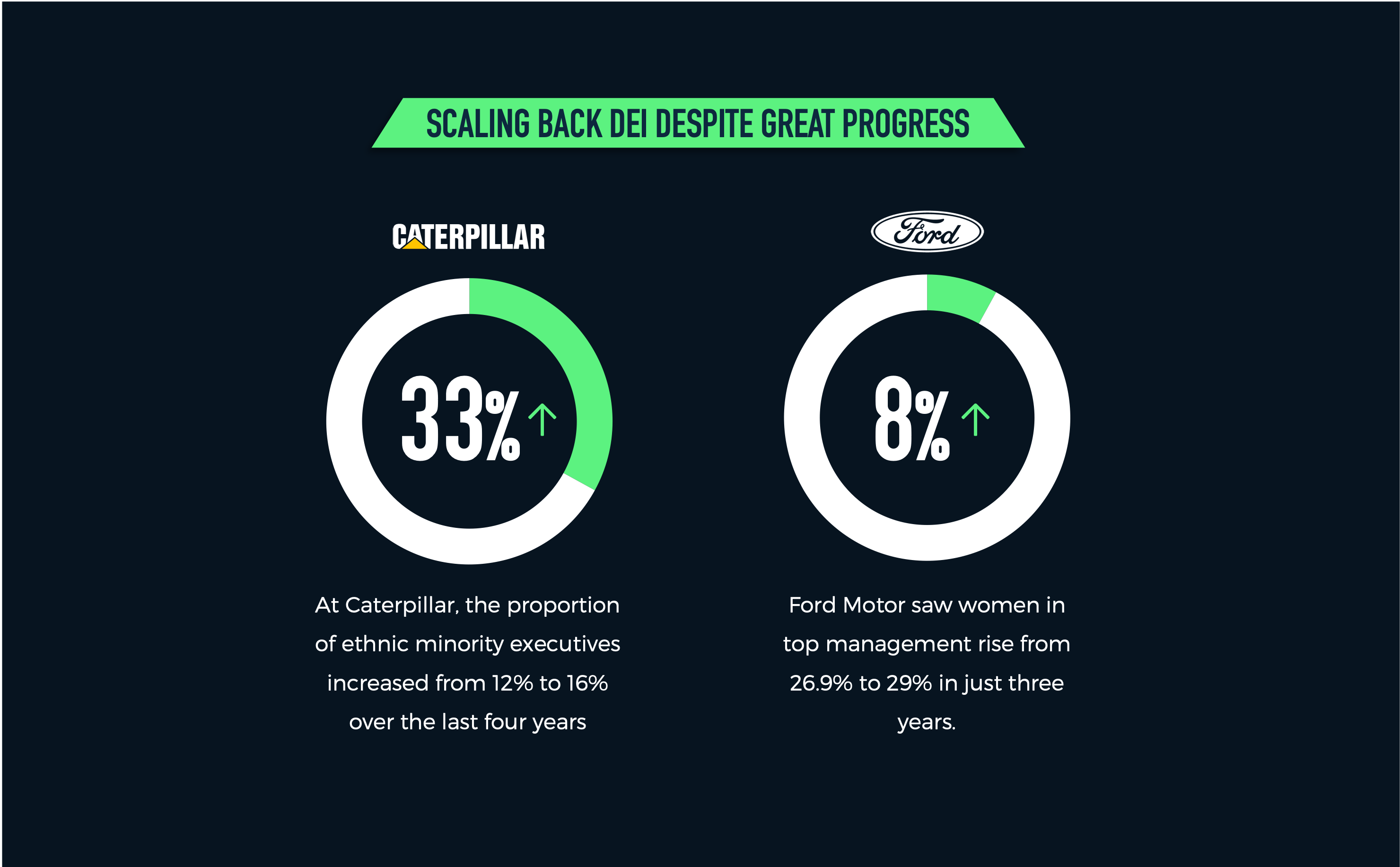
In Conclusion
This wider look at companies, instead of focusing solely on those grabbing the headlines, shows that DEI is far from being “abandoned.” Ken Janssens, Co-Founder and Head of Social Impact at Windō says that “Rather than dwelling on isolated cases of companies pulling back, it’s crucial to recognise the broader strides being made across corporate America. DEI isn’t just here to stay—it’s driving positive change for the majority of companies.”


